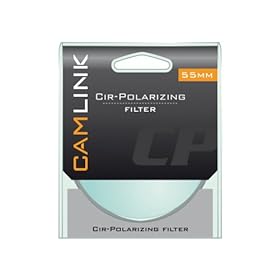As I understand it, blue sky often/usually contains a lot of UNpolarised light - ie light that has been scattered and is heading in all directions; the polarising filter removes this, returning the sky to its pristine and beautiful blue self. But the filter will not remove haze, which consists of actual particles suspended in the atmosphere.
That's my understanding anyway; perhaps one of you guys with the degree in photonics would like to confirm this or otherwise?

I agree that if the outer rim of your lens rotates when focusing, using the polariser should be the last thing you do. Otherwise, they're really very easy to use. TTL metering will sort everything for you. Remember that they are most effective at 90 degrees to the angle of the sun.
You're not quite right Jerry, but let me clarify. Light from the sun is polarised, and the atmosphere de-polarises it somewhat, but bright blue sky is pretty clear and polarisers cut it out a lot and have a strong effect. I have some pictures taken in Greece (nearer equator, sun directly above) where the sky is almost black. Clouds however scramble it up pretty effectively though, so polarisers don't do much to darken skies on overcast days.
Polarisers can reduce haze, I think in theory, but my experience is not by any noticeable amount. The theory here is that if the atmosphere contains a lot of dust particles which polarise light through reflection off their surfaces, then the polariser can have a go at them, but really not worth bothering about.
Some other points: you need a circular polariser with DSLRs because the AF system polarises the light off the semi-silvered mirrors used in the focusing system and this can get confused with a plain linear polariser. It's the same with some metering systems also, but this is a camera design effect, not a film/digital thing. A circular polariser is actually a linear polariser with a quarter wave plate stuck to the back, so that the light is polarised in the nromal way, but then scrambled by the plate so that the camera sensors get an even helping of light regardless of the rotation of the filter.
Polarisers are also very effective with reflections, provided the angle is right - optimum is 35 degrees from the surface. They work well with lanscapes, even on cloudy days, as all reflections are polarised, ie of leaves and grass etc. You can't really orientate the filter much to modify this effect, but some leaves will randomly fall at the right angle for the filter to get to work on them. It looks good.
Polarisers are very effective in getting rid of reflections of cars, but only from one angle at a time. For example, they will work on the windscreen and bonnet, but not on the side at the same time. You have to rotate it 90 degrees for the other option. And if you use it on the sides of cars, the toughened glass used for side windows often shows stress marks - a mottled pattern (windscreens are laminated these days).










 I pointed the camera out of the window this morning as I had 5 mins to spare and the camera will not focus with the filter in place at long zooms - the viewfinder image isn't sharp but the AF activity was normal.... I'll try and put some proper time into this at the weekend and get my head around what I'm most likely doing wrong!
I pointed the camera out of the window this morning as I had 5 mins to spare and the camera will not focus with the filter in place at long zooms - the viewfinder image isn't sharp but the AF activity was normal.... I'll try and put some proper time into this at the weekend and get my head around what I'm most likely doing wrong!
